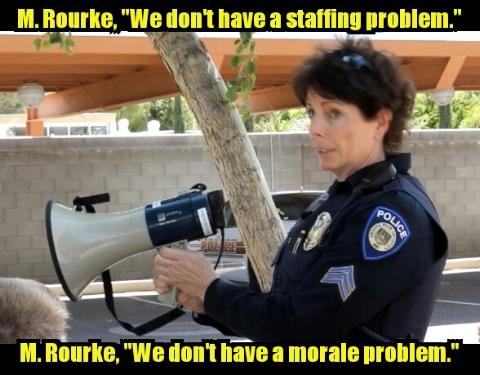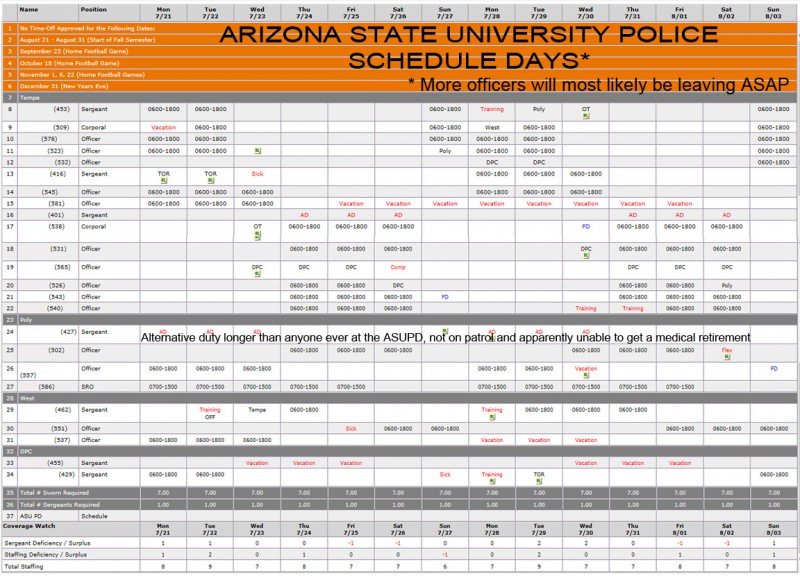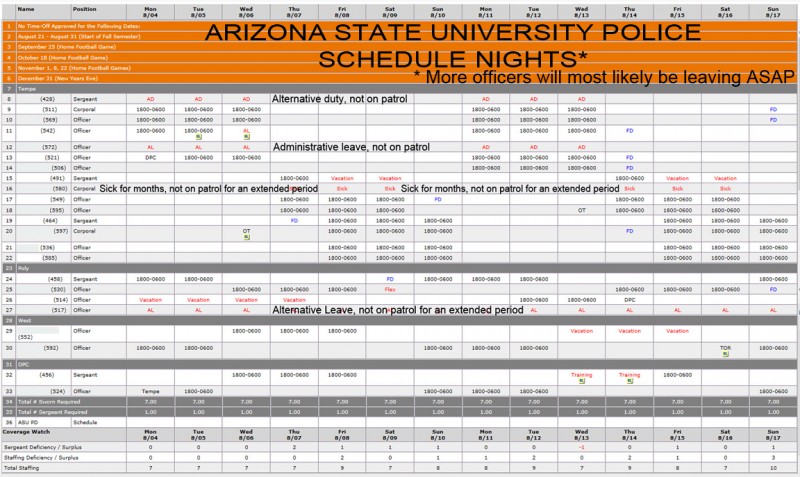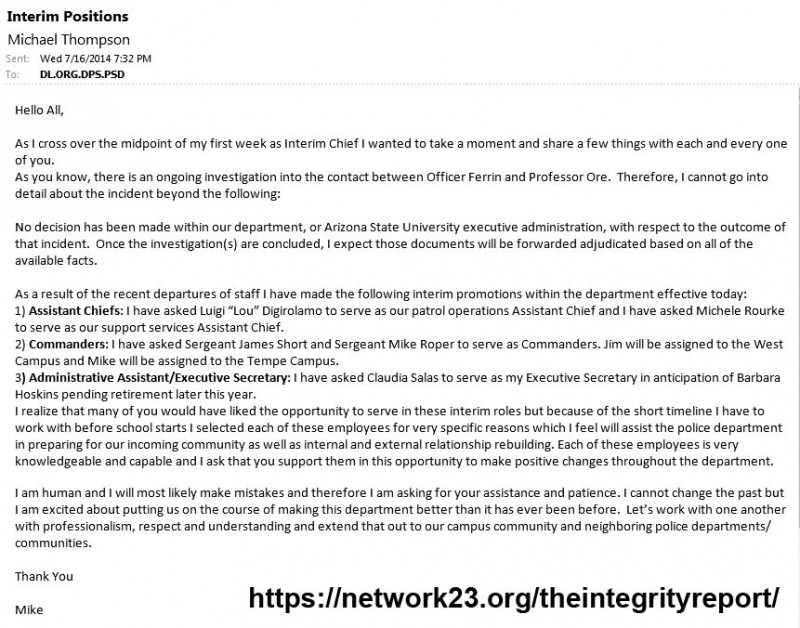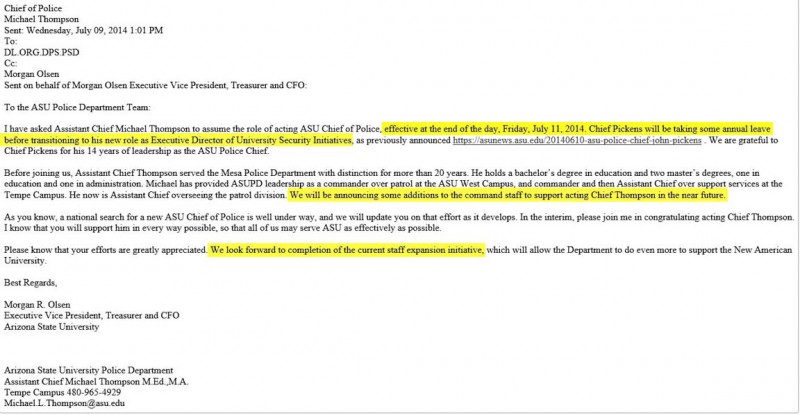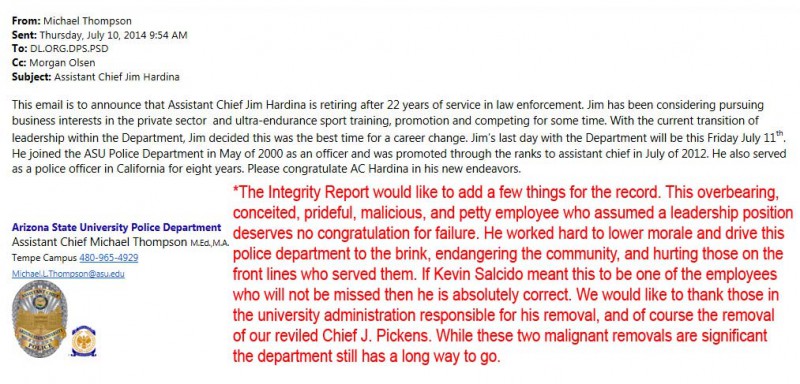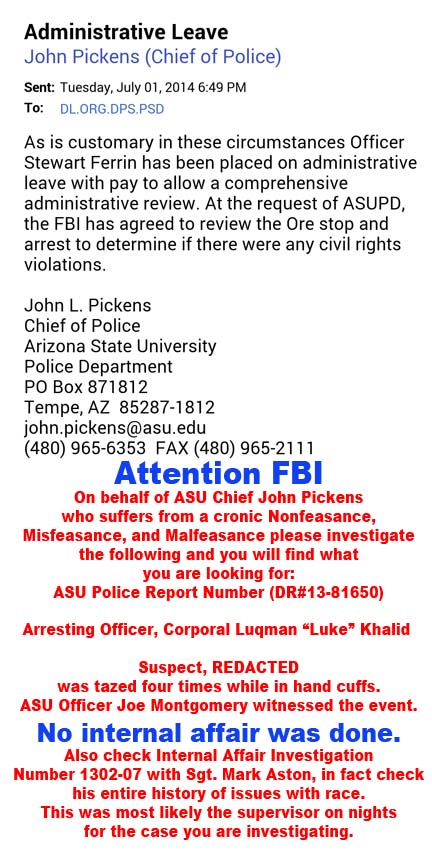This email was sent to all ASU students, faculty, and staff and outlines ASU’s commitment to address sexual abuse prevention.
From: Michael Crow <Michael.Crow@asu.edu>
Date: Fri, Aug 22, 2014 at 10:00 AM
Subject: Sexual Abuse PreventionDear Members of the ASU Community:
Sexual misconduct, including sexual violence, is a national problem, and college and university campuses certainly have not been immune. National surveys report that one in five undergraduate women and one in sixteen undergraduate men experience attempted or completed sexual assault while in college. Such violence has a profound impact on a victim’s academic, social, and personal life, and negatively affects the experiences of their friends and families, other students, and all members of the university community.
Arizona State University is committed to combatting this complex social problem and strives to foster a positive learning, working and living environment that promotes every individual’s ability to participate fully in the ASU experience without fear of sexual violence, or even sexual harassment. Through university policies, awareness efforts, education and training programs, and advocacy, every member of the ASU community should be prepared to actively contribute to a culture of respect and keep our community free from sexual violence, harassment, exploitation and intimidation.
Cases involving allegations of sexual misconduct that are reported at ASU are fully investigated in accordance with the Arizona Board of Regents Student Code of Conduct. ASU provides victims with resources that let them know they are not alone, including guidance on finding a safe place, filing a police report, talking with counselors and seeking medical care. This fall, more than 4,000 students are participating in training to raise awareness about sexual violence prevention and bystander intervention. Additionally, all ASU students will be completing Consent and Respect, an online educational module designed to enhance awareness of sexual violence and its impact on college students, and to provide critical information on what to do if you or someone you know experiences sexual violence. Expanded sexual assault prevention training and education will also be provided to all faculty and staff. Information on how to report an incident, university policies and procedures can be found at a new web portal that provides a comprehensive list of campus resources dedicated to combatting sexual violence.
In order to ensure that our current policies, practices, programs, and support services foster an environment in which all community members have the opportunity to thrive, I have established a task force to review our current efforts related to sexual violence prevention. The task force will review our current policies and practices, strengthen our education and awareness efforts, enhance existing and forge new partnerships with key organizations and agencies, and review and recommend support services and resources for victims of sexual misconduct.
Specifically, the task force will:
- Review current reporting and adjudication processes and procedures and make recommendations for change or improvement;
- Review current support services and recommend opportunities to provide maximum support to community members who experience sexual violence;
- Recommend ways to increase overall awareness within the campus community on issues of sexual violence, community standards, and campus resources;
- Identify ways to enhance the effectiveness of our educational efforts regarding sexual assault prevention and bystander education;
- Recommend ways for members of the community to engage in educational activities towards building a culture that fosters prevention;
- Examine the role of alcohol and drugs in relation to issues of sexual violence and make recommendations for policy, education, and outreach; and
- Identify how the institution should best evaluate the effectiveness of our efforts.
The task force will be co-chaired by Marlene Tromp, vice provost & dean, New College of Interdisciplinary Arts & Sciences, and Jennifer Hightower, deputy vice president for Student Services. The task force will seek input broadly from students, faculty, administrators, law enforcement and subject matter experts, and I have asked the co-chairs to move expeditiously so that we may have the opportunity to make improvements and modifications to our efforts to prevent sexual violence during the 2014-15 academic year.
As the new academic year gets under way, we all must strive to build a culture of respect in which every member of the Sun Devil family feels free from the threat of sexual violence.
Sincerely,
Michael M. Crow
This email uses lots of broad, empty language to discuss ASU’s “plan” to deal with sexual abuse/sexual assault, in order to prevent a repeat of last years sex assault explosion. Noticeably absent is the direct inclusion of ASU’s own police department in ANY stage of the planning or implementation process, save for the tidbit where the university will assist a victim of sexual abuse or assault with filing a police department (whether or not your criminal complaint will be handled appropriately by ASUPD is an entirely separate discussion).
Preventing sexual abuse/assault starts with notifying students about incidents that occur on campus in accordance with the Clery Act. ASUPD has shown it is unable to correctly report its crime statistics under the Clery Act by reclassifying sex offenses, or by completely omitting sexual assault statistics from Clery due to ASUPD’s inability to analyze crime reports.
Many of Crow’s suggestions have broad implications for ASUPD, but with staffing hitting a critical low, President Crow completely ignores the fact that his police department can’t even fulfill its basic functions, yet alone proactively engage with the community on issues pertaining to sexual violence. The “broad input” Crow seeks from law enforcement is nothing more than a fancy buzzword used by Crow to look like he cares about what the police department’s perception of the situation is.
Bottom line, Crow: If you are really concerned about curtailing sex abuse and sex assaults on campus, you need to invest the time and money into building and retaining a solid campus police force.



